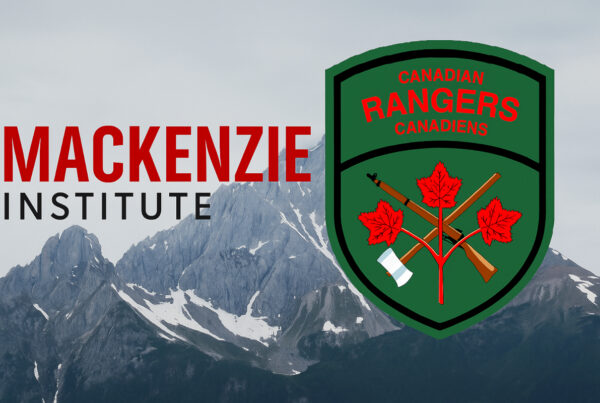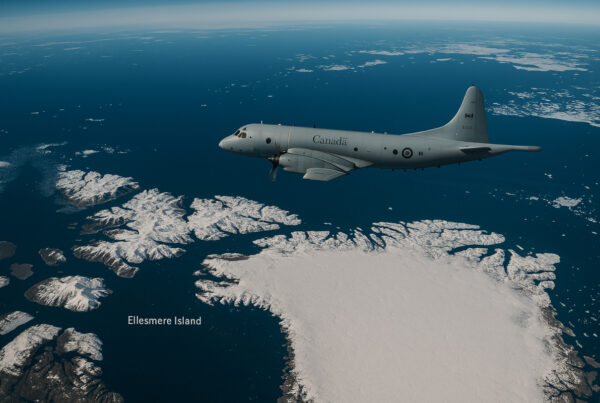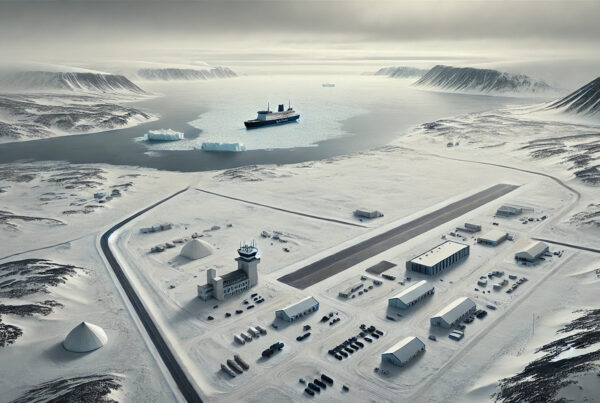Strategic problems of NATO–Russia relations
(The Fourth of Five Articles)
Maxim Starchak is currently a Fellow at Centre for International and Defence Policy at Queen’s University in Kingston, Ontario, Canada. He has a PhD in Political Science, and an MA in International Relations from the Irkutsk State University in Russia. Please see a more complete biography at end of the article.
Relations between Russia and NATO were formed in a different political reality when ‘Russia’ was the leader of the Soviet Union. Then Russia was different state following other values and interests. Post Soviet Russia was ready to be a partner of NATO and move towards equal and mutually beneficial cooperation. Vladimir Putin in the first term of his presidency in his annual Address to the Federal Assembly strongly emphasized the importance of cooperation with Europe; he saw Russia as a part of it and was ready to establish partnerships. There is no ‘old Soviet’ Russia anymore.
But the value of Europe as a political-economic-cultural model is less relevant in the Russian view. Russia began to deliberately criticize European and NATO’s policy, accuse the alliance of crisis of the European security.xlix The political and defense establishments of Russia see the country as a strong and flag-waving government, for which it is important to achieve common security not by collaboration, but by adopting its own independent policy aimed at consolidating its power and influence. For example, Foreign Minister Sergey Lavrov warned Western colleagues that the lack of a systematic dialogue with Russia, primarily on the military line, “will be very high.”l Western countries are trying to minimize any success of Russia in Syria and create new obstacles to overcome the crisis,li – said Defence Minister Sergei Shoigu. According to this logic, the co-operation with NATO is only possible if the alliance’s representatives adopt the fundamental role of Russia in European security and make concessions on its requirements to solve the “security problems” which Russia is seriously worried about. First and foremost, these issues are the American missile deployment in Eastern Europe and the expansion of the NATO alliance. Apart from the new military activity of NATO these two problems are the ones forming the base of Russia’s dissatisfaction.lii
Russia sees no missile threat to Europe from Iranliii or North Korealiv and perceives the missile defense as an element of strategic deterrence.lv NATO expansion is not perceived as a right of states to ensure their security, but as groundless expansion of the military bloc to Russian borders.lvi
Earlier Russia was a weak and economically unstable country with underprepared and understaffed armed forces. Now, however, even despite the crisis in the Russian economy and international sanctions, the armed forces have no material problems, the military establishment regularly goes on different kinds of exercises and gets new equipment. Moreover, the self-consciousness of Russian politicians and militaries has been patriotically formed a long time ago and not only represents pride for the country, but strives to teach the US and the West at large.lvii The self-consciousness of society is still being formed by propaganda on the threat from NATO, and the response policy of the alliance significantly stimulates this process. Now there is certainty that Russia will respond to NATO.lviii
In May 2016, after the beginning of the deployment of the US missile defense system in Romania, Putin said that Russia will respond to this step.lix With the same words the president of Russia answered the question about the Finland’s possible membership in NATO.
In the interview to the German newspaper “Bild” Putin considered NATO’s eastward expansion to be the Cold War policy.lx This can be understood in a historical context as in 1952 Stalin offered occupation regimes in Germany a peace treaty with the USSR allowing them to have their own army and military industry, but providing a refusal of entry into military blocs. By this Stalin wanted to prevent the entry of West Germany into NATO, in other words the expansion of the alliance to zones to confront areas of his influence. Now the same is going on. Russia puts forward ideas, proposals and arguments to prevent NATO’s expansion to its borders. Like today, in 1950 NATO saw it important to provide potential members freedom of choice in their security. In 1955, West Germany entered NATO and Moscow in response created the Warsaw Pact and significantly increased the tension of the Cold War. We can assume that NATO expansion in Ukraine or Georgia or even in Sweden and Finland will also provoke a harsh response from Moscow and amp up the tension of the Cold War. Russia will qualitatively and quantitatively expand forces in the European part of the country.
The NATO deployment of missile defense in Europe is planned to be completed by 2020. For some time Russia has openly declared that these actions will be followed with a severe response. And if Russia responds with the deployment of Iskander missile complexes in Kaliningrad to the increase of NATO’s military presence in Eastern Europe with the deployment of missile defense systems in Poland and Romania, then a ‘cold war; condition is aggravated. However, NATO if no longer perceives threats as real, the confrontation and escalation may well continue.
Biography
Maxim Starchak, in addition to his PhD in Political Science, and an MA in International Relations, passed postgraduate courses in MGIMO (University) of the MFA of Russia, CTBTO Preparatory Commission in Vienna, Belfer Center for Science and International Affairs at Harvard University. In 2013-2015 he was a Research Fellow and Editor of the “Security Index” journal at PIR Center; also in 2013-2014 a Research Fellow at the Military Economy Department of the Gaidar Institute for Economic Policy. During 2011-2014, he was an expert at the Eurasia Heritage Foundation. In 2011- 2013, he was a Research Fellow at Institute for US and Canadian Studies and Executive Director of the Center for Strategic Estimates and Forecasts, which founded an International Expert Council on cooperation in the Arctic. In 2011 he was Editor-in-Chief of the journal “Big game: politics, business, security in Central Asia”. In 2009-2013, Expert on the “Security Index in Central Asia” project, at the Institute of Political Solutions (Kazakhstan). In 2010-2012, Head of Analytical Directorate at the Foundation for advanced studies “Bastion’. In 2008-2010, a Council Member of the Siberian Centre for security and nuclear nonproliferation. In 2007-2010, Coordinator of the Russian Youth Association for Euro-Atlantic Cooperation. In 2006-2011, Vice President, Head of the Research Group on International Security and Conflicts at Russian Political Science Association. In 2006, he was also the co-founder of Youth Department at Russian Political Science Association.
In 2013-2014, he was author and editor of PIR Center White Paper “Towards nuclear disarmament: NTP article VI and Implementation of the 2010 Review Conference Decisions”. In 2014-2015, Executive Editor of the
Conference Proceedings of III & IV Moscow Conference on International Security of the Ministry of Defence of Russian Federation. In 2014-2015, Working Group Member from Russia for preparation of the BRICS Think Tanks Council report (section “international peace and security).
Since 2010 he has been a permanent member of the Expert Council of the annual all-Russian essay competition on NATO-Russian relations of the NATO Information Office in Moscow and Information Centre for International Security. He has received academic and public awards and grants from: MGIMO-University, Moscow State University, Institute of Oriental Studies, JSC “Rosatom”, Eurasian Development Bank, Russian Political Science Association, Federation for Peace and Conciliation, National Committee on BRICS Research, NATO Information Office and EU Delegation in Moscow.
Current Interests/Research:
· Russian defence policy;
· NATO-Russia relations; and
· nuclear disarmament and arms control.








